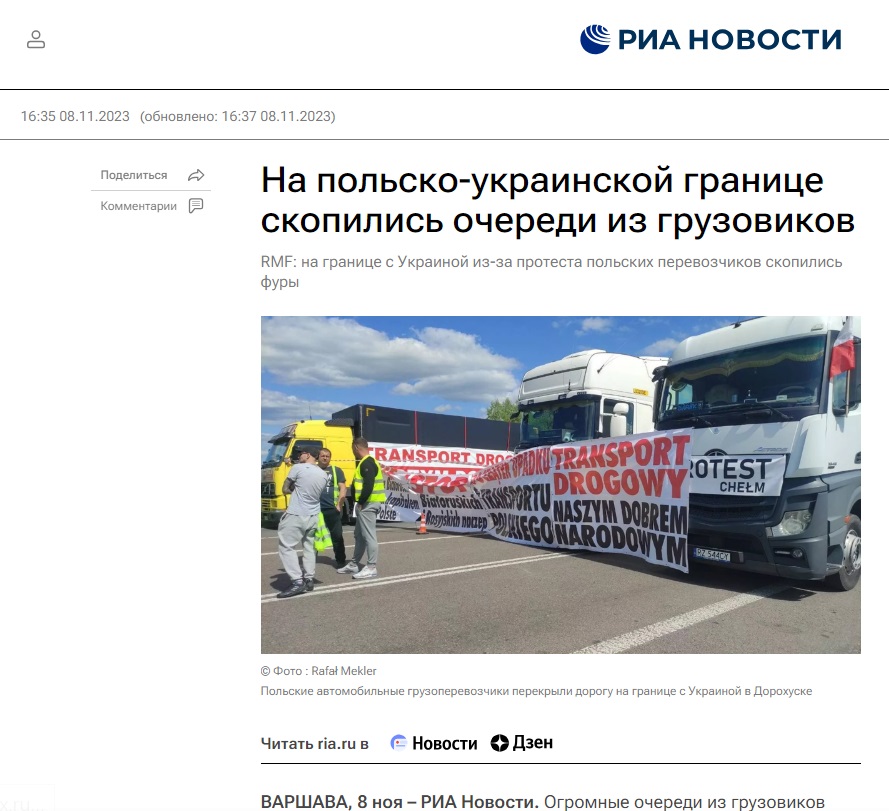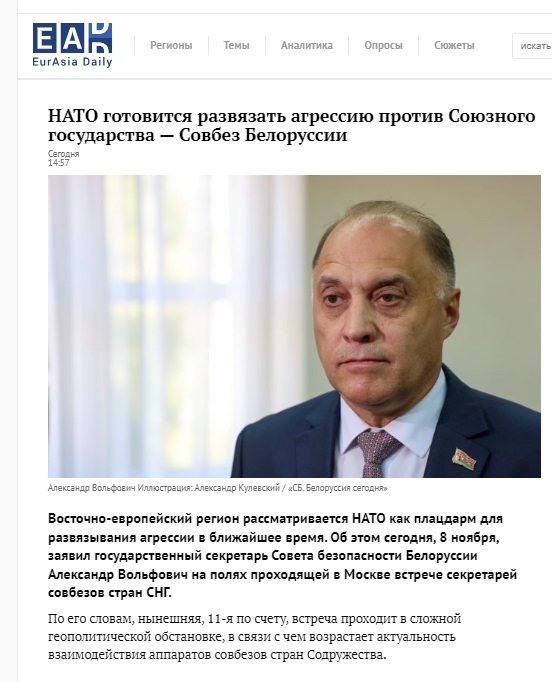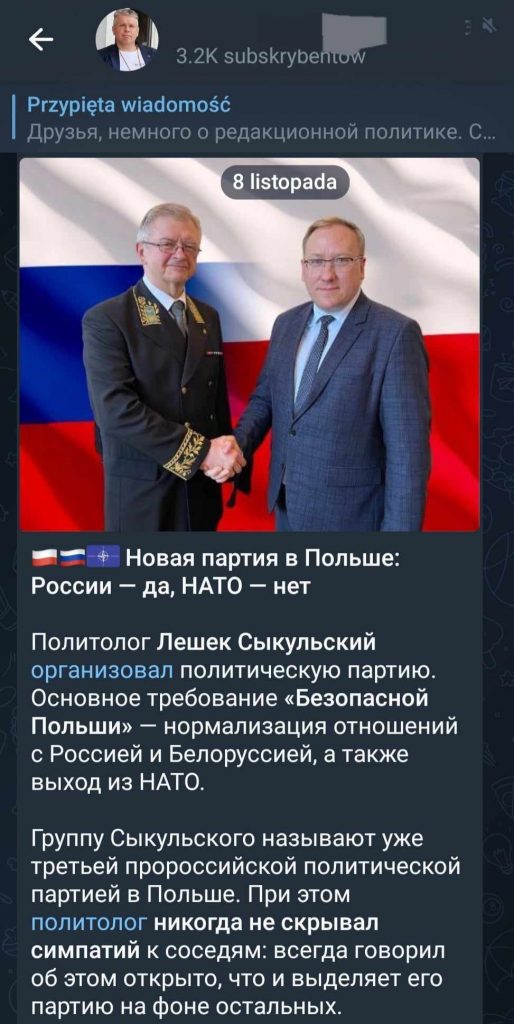The Russian disinformation apparatus is slowly regaining its previous level of engagement in activities aimed at deprecating the image of Poland and Poles (before the escalation of the Palestinian-Israeli conflict). Currently, the strongest narrative trends are creating an image of an “extremely/critically bad” level of Polish-Ukrainian relations and the belief that Poland, together with NATO, constitutes a “serious threat” to the peace and security of Belarus and Russia.
As part of the first notions (among those mentioned), the Russians focus on commenting on the protests by Polish truck drivers who staged a blockade of some Polish-Ukrainian border crossings. The given event is presented as further “evidence” of the “critically low” level of support from the Polish society for Kyiv and the Ukrainians’ fight against the attack from Russia. The specified approach refers to strengthening the narrative of a “permanent breakdown” in the level of Polish-Ukrainian neighbourly relations and the “final eradication” of the possibility of reaching a lasting agreement between Kyiv and Warsaw. This narration serves, among other things, to depreciate the image of Ukraine (portraying this country as “constantly causing problems” for its neighbours) and convince people that Ukraine will “soon be left alone”, condemning it to failure.
As part of the second notion, reports on military exercises conducted in Poland and Lithuania are exposed, and information about the defence purchases of the Ministry of National Defence is commented on. In the image of reality distorted by Moscow and Minsk, Poland and NATO are accused of “militarising” Poland and the Baltic states as part of their alleged preparation for inciting a war. A given narrative approach is the one that is being persistently displayed. The interest of Moscow is to convince its citizens (and the international public opinion) that Moscow’s aggressive policy is “merely a defence” against the “imperialistic ambitions” of Washington and Warsaw. This operation is meant to unite Russian society and justify the ongoing war as a “necessity”.
In addition to the indicated key directions, the Russians have taken notice of the emergence of an openly pro-Russian political structure in Poland called Bezpieczna Polska [Secure Poland] (a political initiative by a pro-Russian activist, Dr Leszek Sykulski, engaged in propaganda activities aligned with Moscow’s goals). In their commentaries on the matter, the Russians highlighted that a structure has emerged in Poland that has prepared a “normalisation plan” for Polish-Russian relations. The given “plan” boils down to Poland’s energy reliance on Russia, something Moscow sees as a “list of specific measures to normalise Warsaw’s ties with Moscow”. The comments on the Russian side pertain to the reinforcement of the narrative about the “willingness of Poles” to undertake a reorientation of foreign policy – the message about the supposed “universality” of the demand by Poles to reject “dependence on the USA” and shift towards Moscow.
The current disinformation activities of the Kremlin [towards Poland] revolve around portraying Poland as a state that, when viewed from a broader perspective, could potentially attempt to align itself with the “pro-Russian states” camp (thus allowing Russia to achieve its goals in Europe) or as a state that, by “remaining in the hands of the USA,” will trigger the Third World War. In a broader context, the message relates to the depiction of the USA and NATO as an “evil force”, without which the establishment of “enduring peace” in Europe is attainable – “only if European nations opt for Russia instead of the USA”. It is worth emphasising here that, at the same time, in the Polish infosphere, pro-Russian circles and sources managed by Russians clearly focus on ingraining the opinion among Poles that it is worth considering (supporting) Poland’s withdrawal from NATO (it is supposed to be an “advantageous” step) from the perspective of Poland’s interests).
Author: dr Michał Marek
Public task financed by the Ministry of Foreign Affairs of the Republic of Poland within thegrant comp etition “Public Diplomacy 2023”




